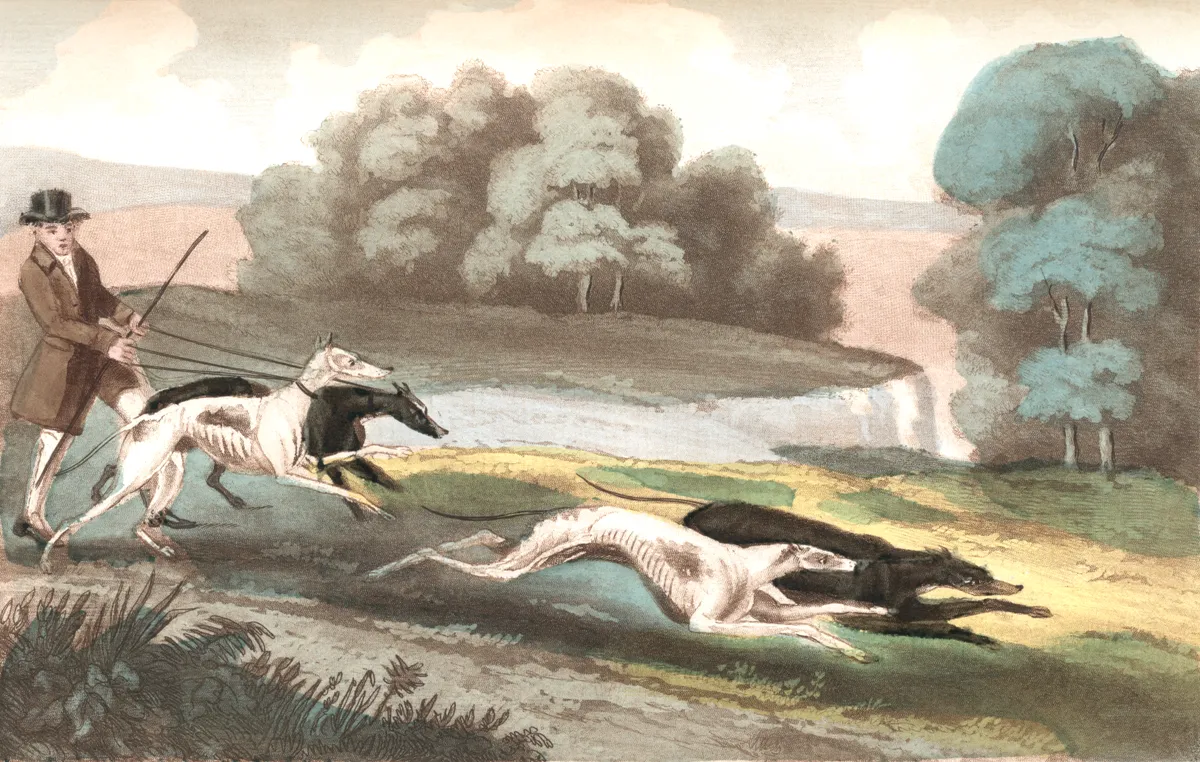After years of campaigning by conservation groups and the National Farmers’ Union, it was heartening to hear that tough new measures to tackle the illegal practice of hare coursing have at last been brought into force by the UK government.
What is hare coursing?
Hare coursing is barbaric. Typically, two greyhounds (or other fleet-footed dogs that hunt by sight rather than smell) are set onto a brown hare. The coursers bet on how closely each dog can follow the twists and turns of the hare as it tries to escape, and whether they will ultimately catch and kill it.
Hare coursing is closely connected to organised criminals responsible for a range of serious unlawful activities
It is a serious problem in many rural areas. Not only does it involve cruelty to the hares (and, often, the dogs), it is closely connected to organised criminals responsible for a range of other unlawful activities, including theft, criminal damage, violence and intimidation, according to a report from Wildlife and Countryside Link. It also involves enormous sums of money (up to £10,000 per person, per month) changing hands through high-stakes illegal betting.

What are the penalties for those caught hare coursing?
Now, though, anyone caught hare coursing will face an unlimited fine and up to six months in prison; and there are new powers for the courts to disqualify convicted offenders from owning or keeping dogs.
This is good news. But it doesn’t mean the end of hare coursing. Far from it.
The police are already stretched to the limit dealing with ‘real’ crimes (as my local MP once put it). There is a National Wildlife Crime Unit, but it only has about a dozen overworked staff and has been significantly underfunded for years. Worse still, funding is year to year – which makes it impossible to plan.
6.3 million crimes were recorded in the year to March 2022 – but just 5.6 per cent of them led to a suspect being charged or summonsed
Meanwhile, recorded wildlife crimes in England and Wales have just hit a 20-year high. Data from the Office for National Statistics shows that 6.3 million crimes were recorded in the year to March 2022 – and only 5.6 per cent of them led to a suspect being charged or summonsed (a new low, down from 16 per cent in 2014–15).
Is wildlife crime increasing?
Crimes against wildlife are widespread, numerous, varied – and reports of them are increasing. It’s not just hare coursing. There is deer poaching, fox hunting (which can occur under the smokescreen of trail hunting), persecution of badgers, bats and birds of prey, egg theft, and so on. Animals are being killed illegally every day – sometimes for sport, sometimes for profit, and sometimes out of sheer callousness.
There are no official figures, so it’s virtually impossible to gauge exactly the scale of the problem. Police are not required to record wildlife crimes – most are listed as ‘miscellaneous’ – and without proper statistics it is impossible to target sufficient resources effectively. It’s a long-standing issue that needs to be solved as a matter of urgency. Indeed, a shortlist of wildlife offences is currently being considered by the Home Office for notifiable status.
But you don’t need all the statistics to realise that we are failing to tackle wildlife crime. The number of prosecutions in England and Wales in 2020 (the latest figures available) were as follows: 7 for persecuting badgers, 14 for bats, 25 for hunting, 1 for raptors (despite there being 104 cases where criminal offending was confirmed), and none for amphibians and reptiles. Few of these resulted in convictions. That’s shockingly, appallingly bad.
How can we do more?
Even if there was sufficient funding, the police urgently need expert training to investigate wildlife crimes; prosecutors need adequate time to prepare cases; and sentencing must consistently reflect the seriousness of these crimes and act as a deterrent to criminal activity. Currently, unlike most other crimes, the Sentencing Council provides no sentencing guidelines for wildlife crimes.
Meanwhile, will many hare coursers be caught – let alone be subject to the full force of the law? I doubt it.
